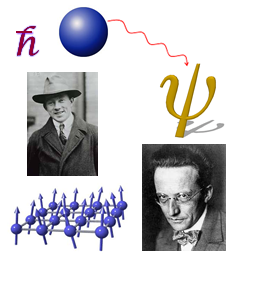Key Takeaways:
- Epistemic probability is incomplete information about how probabilities arise.
- The field bridges the gap between known measurements and what is thought to be true.
- An example is classical statistical mechanics.
Epistemic probability concerns “…our possession of knowledge, or information.” It is incomplete knowledge about the mechanism from which the probabilities are derived. A common use of the term is to define how much support is given by all the available evidence; it can be measured in “degrees of belief” or “degrees of rational belief”.
The term Epistemic comes from philosophy and means:
“…namely the degree of belief in the occurrence of the state of affairs, the willingness to act on its assumption, a degree of support or confirmation, or similar” [1].
Types of Epistemic Probability
Epistemic probability merges traditional statistics, approaching the problem from the viewpoint of epistemic attitudes. These probabilities can be:
- Doxastic: Opinions about data and hypotheses, with a strength of belief.
- Decision-theoretic: Builds on doxastic in a more elaborate way, figuring out dispositions towards actions and decisions relating to data and hypotheses.
- Logical: A formal framework for epistemic probability, comparable to truth values in deductive logic.
Example of Epistemic Probability from Quantum Mechanics
 One example of the use of epistemic probability is to assign probabilities to the possible truth of a proposed law of physics. In quantum mechanics, there are two different approaches to determining probabilities in quantum mechanics. The more fundamental way is through Brownian motion, a type of stochastic process. However, classical statistical mechanics, which is deterministic, is epistemic probability—the probabilities emerge because of incomplete descriptions [2]. The gap between what is measured and what is thought to be true is achieved through development of an epistemic probabilistic framework.
One example of the use of epistemic probability is to assign probabilities to the possible truth of a proposed law of physics. In quantum mechanics, there are two different approaches to determining probabilities in quantum mechanics. The more fundamental way is through Brownian motion, a type of stochastic process. However, classical statistical mechanics, which is deterministic, is epistemic probability—the probabilities emerge because of incomplete descriptions [2]. The gap between what is measured and what is thought to be true is achieved through development of an epistemic probabilistic framework.
References:
Image: Voyajer at the English-language Wikipedia,
[1] Stanford Encyclopedia of Philosophy. Philosophy of Statistics. Retrieved October 22, 2021 from: https://plato.stanford.edu/entries/statistics/
[2] Saunders, S. What is Probability? Retrieved October 22, 2021 from: https://citeseerx.ist.psu.edu/viewdoc/download?doi=10.1.1.252.8105&rep=rep1&type=pdf